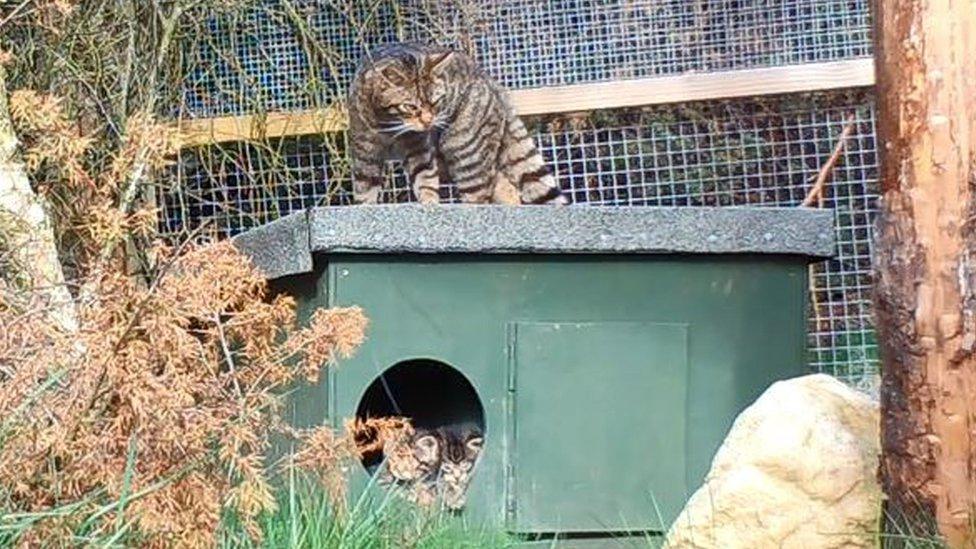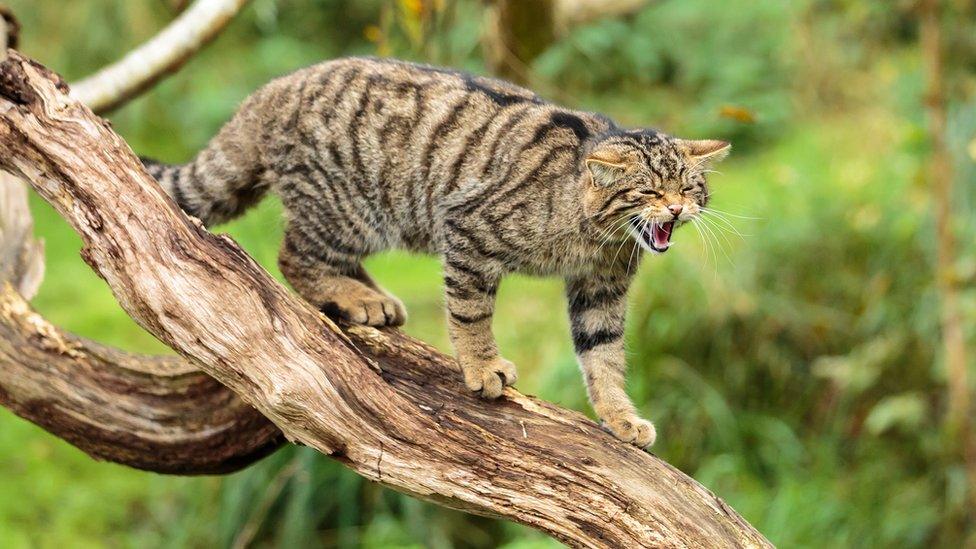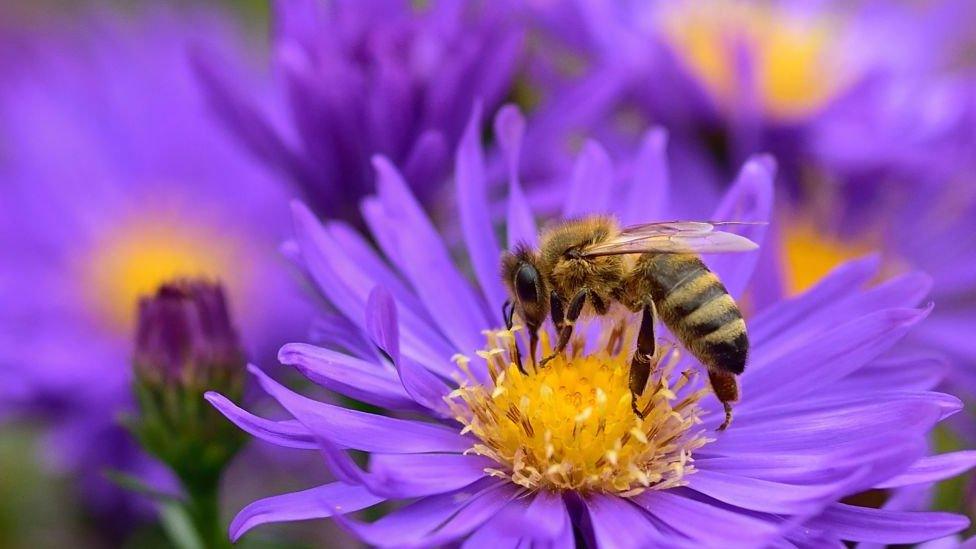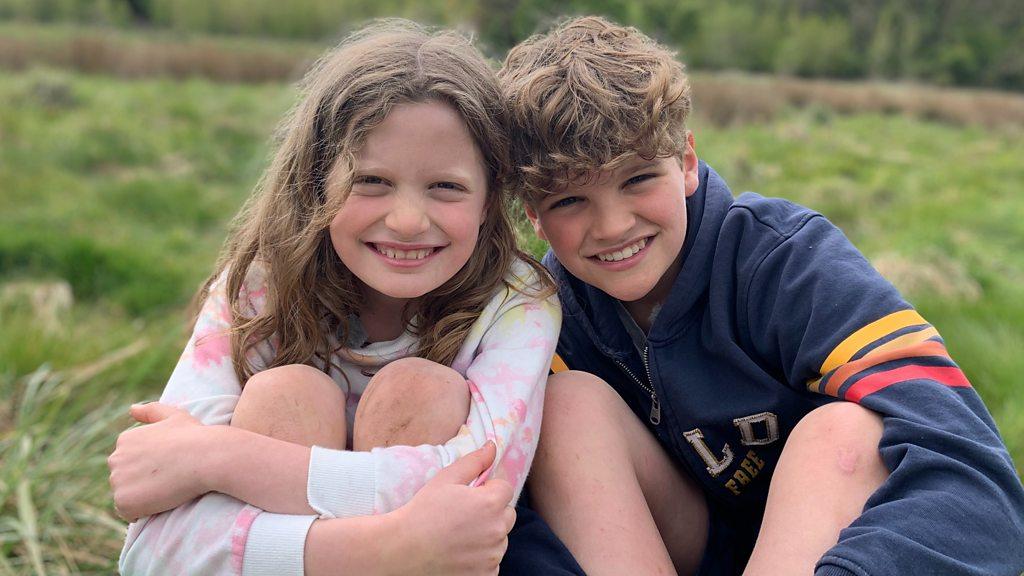Wildcat kittens born in Scotland could save species from UK extinction
- Published
- comments

These are some of the wildcat kittens in their nesting box
Eight wildcat kittens have been born at Highland Wildlife Park in Scotland.
Wildcats are critically endangered in the UK so the birth of the kittens is big news.
The kittens were born to three sets of parents at the Saving Wildcats conservation centre with hopes for more in coming weeks.
When the cats are old enough they'll have a very important role to play in saving their species in the UK.
What's next for the wildcat kittens?
The wildcat kittens and their parents are enjoying exploring
Eventually, when they are independent enough, they will be released into the wild to carefully selected locations to begin to restore the population.
The conservation project is being led by the Royal Zoological Society of Scotland (RZSS).
The team are planning for the kittens to be released in 2023 - right now they are looking for the best place within the Cairngorms National Park for this.
The wildcats that have had their kittens are called Droma, Caol Ila and Torr. Droma has three kittens, Caol Ila also has three and Torr has two.
Put simply, these kittens are the future of wildcats in Scotland.
Why is this big news?

The UK's only existing wildcats live in Scotland, but there could be plans for them to be reintroduced in England too
The wildcat is one of the UK's rarest and most endangered animals.
Dr Helen Senn, head of conservation and science at RZSS said numbers in the wild had declined as "habitat loss, hunting and inter-breeding with domestic cats have all taken their toll".
So these kitten have given new hope for saving the species.
Sarah Henshall at Cairngorms National Park Authority described the arrival of the first wildcat kittens as a "significant milestone in our collective efforts to save this critically endangered species from extinction in Britain".
- Published7 May 2019

- Published19 May 2021

- Published17 May 2021

